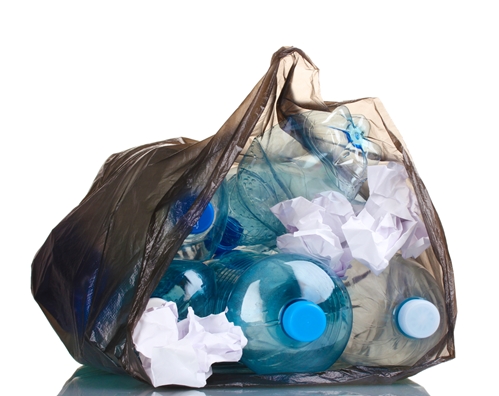
Can Plastic Bags Ever Be Biodegradable?
As environmentalism has become increasingly trendy, a number of plastics companies have tried to get in on the profits of this new market niche. While browsing at your local supermarket, you may have noticed a recent proliferation of plastic bags touted as being biodegradable.
Wait, so are we saying you can use these bags free of guilt? Nope! There’s a catch: Governmental organisations and environmental nonprofits from a variety of countries have recently started cracking down on these plastic companies, exposing their terminology as misleading.
What’s wrong with plastic bags?
Plastic bags wreak havoc on the environment in a number of ways. First, they are dangerous to native wildlife. Animals commonly mistake these bags for food, and can choke to death or suffer fatal digestive problems as a result, according to the Northern Territory Environmental Protection Agency (NTEPA).
Plastic bags also contaminate the oceans, contributing to trash vortexes. These pools of plastic swirl around the oceans, polluting the water and causing harm to native fish populations.
Plastic bags are also a major source of litter in Australia, as well as a significant source of greenhouse gas emissions. The NTEPA states that producing a plastic bag wastes 4.5 times as much energy as creating a reusable bag.
Can plastic bags be biodegradable?
While it may be possible to create biodegradable plastic bags, many of the products currently on the market are anything but. Many of these bags are what is commonly referred to as ‘oxodegradable’ – that is, the bag can potentially break down and decompose in the presence of oxygen. However, most plastic bags end up in landfills, where they are unlikely to be exposed to oxygen. NoPlasticBags.org also notes that these products can also survive long enough to still pose a significant threat to animals.
Additionally, many consumers aren’t familiar with the nature of plastic. Even easily recyclable plastics, such as those found in water bottles, cannot be recycled forever – the nature of plastics is that they break down into increasinly smaller components. Indeed, it is many of these small bits of plastic that pollute our oceans in the infamous trash vortexes.
Plastic bags are no different. The products dubbed ‘oxdegradable’ may not be degradable at all, according to Joseph Greene, professor in the department of mechanical and mechatronic engineering and sustainable manufacturing at California State University, Chico.
“I’ve been telling these companies – and they don’t like this very much – but the ‘oxo-degradable’ label should be changed to ‘oxo-fragmentable’,” Greene told The Guardian. “The plastic is not degrading, it’s fragmenting.”
Cracking down on mislabeling
Recently, the American Federal Trade Commission cracked down on a number of companies claiming to produce biodegradable bags. The Commission stated that companies had little scientific evidence to back up claims that their plastics biodegrade.
“It’s no secret that consumers want products that are environmentally friendly, and that companies are trying to meet that need,” Jessica Rich, Director of the Commission’s Bureau of Consumer Protection, said in a news release. “But companies that don’t have evidence to support the environmental claims they make about their products erode consumer confidence and undermine those companies that are playing by the rules.”
The phenomenon of ‘greenwashing’
The term ‘greenwashing’ has recently come into the public rhetoric when it comes to environmentalism. Greenwashing involves companies labelling products as ‘natural’, ‘sustainable’ or ‘eco-friendly’ in any way they can in order to attract eco-conscious consumers.
Don’t fall for tactics that promise sustainable solutions based on disposable, throw-away goods. Investing in reusable produce bags and products that will last for years is always a more eco-friendly choice than using a disposable product. In fact, according to the NTEPA, you’d have to use a typical plastic bag more than 100 times in order to achieve the greenhouse gas efficiency of a reusable bag.


